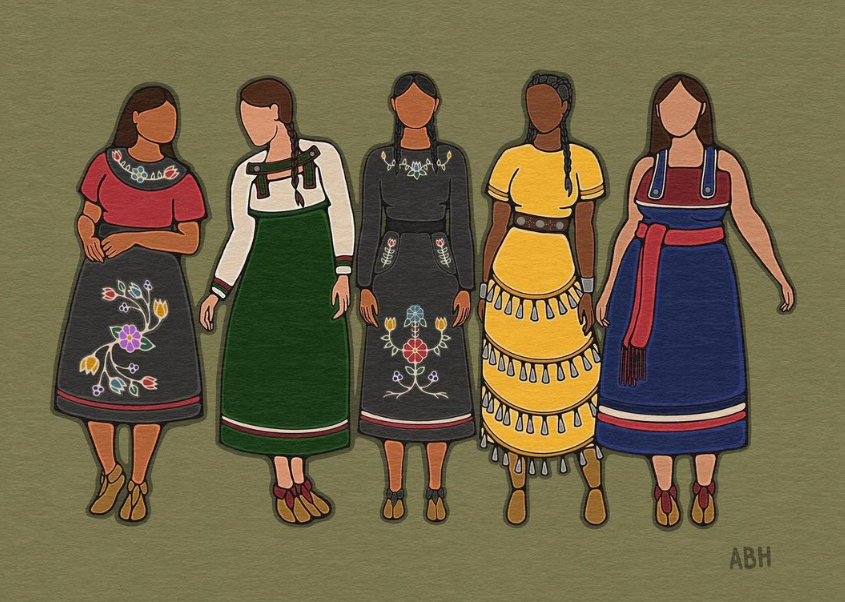Celebrating Indigenous Peoples’ Day
Indigenous Peoples Day has replaced Columbus Day in several states across the country.
October 9, 2022
In 1492, Christopher Columbus sailed the ocean blue… to slaughter and assault hundreds of Indigenous people in the Americas. For many years Oct. 10 has been reserved for the remembrance and appreciation of the conquistador’s supposed “discovery of the New World.” That was up until Oct. 2021, when President Biden issued a proclamation to observe Oct. 10 as Indigenous Peoples’ Day.
To understand why Columbus Day has been replaced with Indigenous Peoples’ Day, one must turn to the holiday’s history. According to History.com, “Columbus Day became a federal holiday in 1937, in part because of efforts by the Roman Catholic Italian Americans.” In the early 19th century, Italian Americans were stigmatized and discriminated against by Protestant Americans. The inauguration of the holiday was intended to promote the acceptance of Catholic Italian Americans in the United States. By declaring Christopher Columbus’ as the discoverer of America, Catholic Italians became a part of American history.
The creation of Columbus Day generated great amounts of miseducation about the discovery of America. Many people were taught that Christopher Columbus discovered the land that is now known as the continental U.S.—this is not true. Columbus never stepped foot in the continental U.S., at least not during his first voyage in 1492.
Instead, Columbus found himself in lands that are now known as countries in the Caribbean. On his first voyage, Columbus reached San Salvador (the Bahamas), Hispaniola (the Dominican Republic), Haiti and Cuba. On his third and fourth voyage Columbus did reach the mainland, but never the continental U.S.
Columbus did not “discover” the U.S. or any land for that matter. The lands he did reach were already inhabited by the Indigenous, making his title as a discoverer a misnomer. Historians have revealed that Columbus and his men were more than cruel to the Indigenous people they met on their expeditions. Columbus and his men enslaved, assaulted and exploited the Indigenous people.
Despite it all, Columbus Day is still a federal holiday in the U.S., and many are asking “why?” Indigenous people in the U.S. have made it a point to educate those who celebrate a holiday that lacks accuracy and honors a man responsible for the death of millions of Indigenous people.
Indigenous Peoples’ Day was introduced in the 1980s. The holiday gained momentum from the Red Power Movement. According to the University of North Carolina, the Red Power Movement was inspired by the civil rights movement and “aimed to make American Indian people politically visible in an American society that was tearing itself apart again over issues of race and racial equality.” South Dakota was the first state to celebrate Indigenous Peoples’ Day because of the state’s large Native American population. Since then, many states and cities have recognized Indigenous Peoples’ Day in replacement of Columbus Day.
Indigenous Peoples’ Day is still not a federal holiday, but the is gaining more recognition across the country. Columbus Day ignores the challenges Indigenous groups face on a daily basis and discredits any influence Native Americans have had in present day society. In contrast with Columbus Day, Indigenous Peoples’ Day recognizes Indigenous groups whose histories have been “white-washed” and diluted to be more palatable. It is a day in which Americans of all backgrounds can commemorate the Indigenous people and their contributions to American society.








